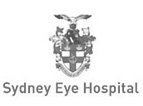Keratoconus
Keratoconus is a condition in which the normal clear and dome-shaped cornea becomes thin and bulges outward to form a cone shape. The cornea plays an important role in refracting and focusing rays of light for clear vision; hence, an altered shape disrupts the function and distorts normal vision. Keratoconus usually affects both eyes, and can either develop suddenly or progress slowly over several years. It can manifest anytime; from childhood, most commonly up to the age of about 40 years.
What causes keratoconus?
Keratoconus is caused due to the weakening of collagen fibres, which make up the cornea. This condition can be passed on from one generation to the next. Vigorous rubbing of eyes, conditions such as keratoconjunctivitis (inflammation of outer layers of the eye), retinopathy of prematurity (abnormal blood vessels in the retina), and retinitis pigmentosa (degeneration of retina), wearing poorly fitting contact lenses for several years, and systemic diseases such as Downs syndrome may also be associated keratoconus.
What are the symptoms, diagnosis and treatment?
The signs and symptoms of keratoconus vary with the progression of the disease. Early symptoms include blurring of vision. Halos (rings seen around lights) and glare, and night vision problems may develop over time. You may also experience sudden clouding of vision. When you present with any of these symptoms, Dr Chiu and her staff will review your medical history, conduct an eye examination, and order diagnostic tests to measure the corneal curve to evaluate the projection and shape of your eyes. Dr Chiu will suggest appropriate treatment options based on the severity and progression of the keratoconus.
Varying treatment options are available to firstly, prevent the progression of keratoconus changes, and secondly, to correct the vision.

















